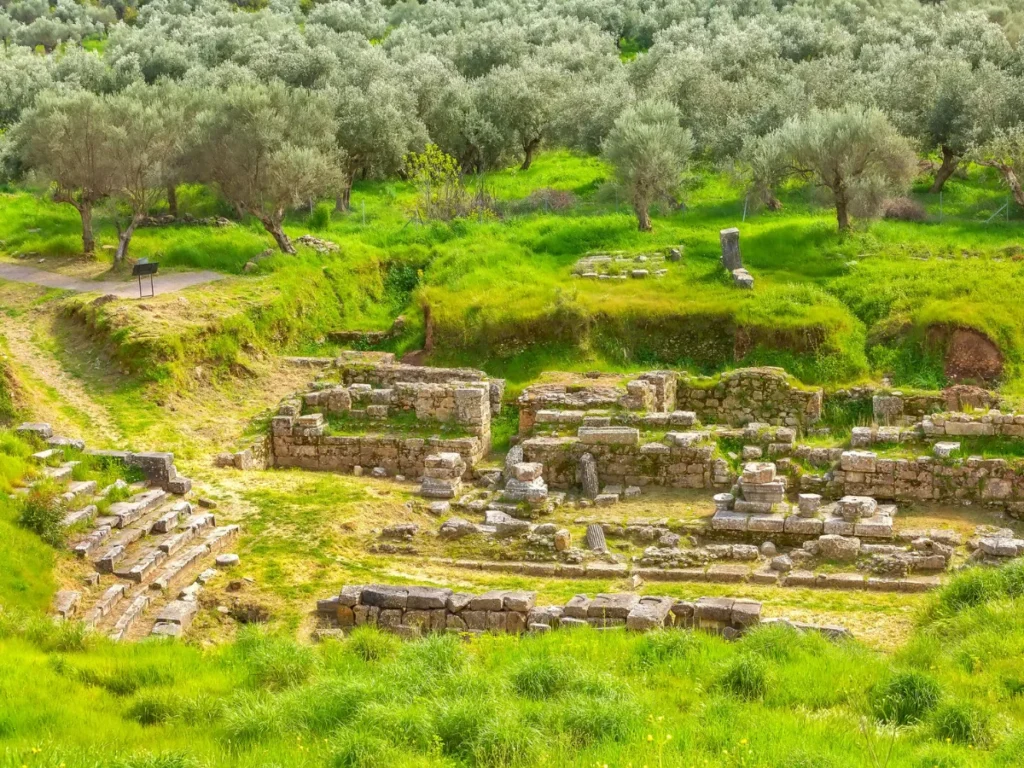Sparta in ancient Greece
Sparta in ancient Greece, distinguished by its martial culture and distinctive way of life, differed markedly from other city-states. Embracing a warrior ideal, Spartan society revolved around military discipline and resilience, shaping their societal fabric. Their complex relations with neighboring city-states, exemplified in the Peloponnesian War, reflected their unique role as both allies and dominant powers. Spartan warfare tactics, divergent from the rest of Greece, spotlighted their disciplined phalanx formations.

Sparta in ancient Greece
Distinctive Spartan Society
Sparta, located in the region of Laconia, stood in stark contrast to other ancient Greek city-states due to its distinctive societal norms. Known for its military prowess and discipline, Sparta’s way of life was deeply intertwined with warfare and the ideals of strength and resilience.
The Spartan Ideal: Warrior Culture
Sparta’s primary focus was on producing formidable soldiers who could protect the state. From a young age, Spartan boys underwent rigorous training known as the agoge, which included physical conditioning, combat drills, and survival skills. This militaristic upbringing instilled discipline, bravery, and camaraderie, forming the backbone of Spartan society.
Complex Relations with Other City-States
Sparta’s relationship with other city-states was characterized by its unique role as both an ally and a dominant power. As a founding member of the Peloponnesian League, Sparta forged alliances for mutual defense. However, their authoritative control often led to tensions, particularly with Athens. This culminated in the Peloponnesian War, a decades-long conflict highlighting Sparta’s determination to uphold its way of life against the Athenian democracy.
Peloponnesian War: A Pivotal Struggle
The Peloponnesian War (431–404 BC) marked a significant chapter in Sparta’s history. It emerged from the ideological differences between Sparta’s military focus and Athens’ emphasis on democracy and naval strength. The war’s intricate dynamics resulted in a Spartan-led coalition, primarily comprised of Peloponnesian city-states, confronting the Athenian-dominated Delian League.
Sparta’s Distinctive Warfare and Tactics
Sparta’s military tactics set them apart from the rest of Greece. They emphasized heavy infantry, known as hoplites, who relied on their phalanx formation for protection and offense. This tightly-knit formation showcased Sparta’s discipline and unity in battle, as seen in their notable victories such as the Battle of Leuctra and the capture of Athens during the Peloponnesian War.
Divergent Way of Life
Sparta’s lifestyle contrasted starkly with the artistic and intellectual pursuits of other Greek city-states. While Athens celebrated philosophy and culture, Sparta cherished simplicity, austerity, and devotion to the state. The Spartans prioritized martial excellence over material wealth, often rejecting materialistic extravagance.
Enduring Legacy
Sparta’s influence persisted long after its zenith. Their military ethos and distinctive societal norms left an imprint on later cultures and military philosophies. The Spartan way of life, with its focus on discipline, unity, and sacrifice, remains a testament to the capacity of a tightly knit society to uphold its ideals in the face of external pressures and internal challenges.
Sparta’s Illustrious Kings: Leonidas and Agesilaus
Leonidas: The Hero of Thermopylae
One of Sparta’s most renowned kings, Leonidas I, achieved legendary status through his unwavering leadership during the Battle of Thermopylae in 480 BC. Facing overwhelming Persian forces, Leonidas and his 300 Spartan warriors valiantly defended the narrow pass, showcasing unmatched courage and unity. Leonidas’s sacrificial stand and his rallying cry for “freedom or death” resonated through history, immortalizing his name as a symbol of bravery against tyranny.
Agesilaus II: The Skilled Military Strategist
Agesilaus II, another notable Spartan king, distinguished himself through his military acumen and leadership during the 4th century BC. He led Sparta through a period of political and military upheaval. His strategic prowess was evident in campaigns against the Persians and Thebans. Agesilaus’s cunning maneuvers and adaptability earned him respect as a formidable military strategist and demonstrated Sparta’s enduring martial prowess.
Enduring Legacy
Both Leonidas and Agesilaus left an indelible mark on Spartan history due to their exceptional qualities and contributions. Leonidas’s stand at Thermopylae encapsulated Spartan courage and resistance in the face of adversity. Agesilaus’s strategic brilliance showcased Sparta’s military strength and ability to adapt to changing circumstances. Their enduring legacies continue to inspire generations, serving as reminders of Sparta’s martial spirit and the impact of exceptional leadership in shaping the course of history.
